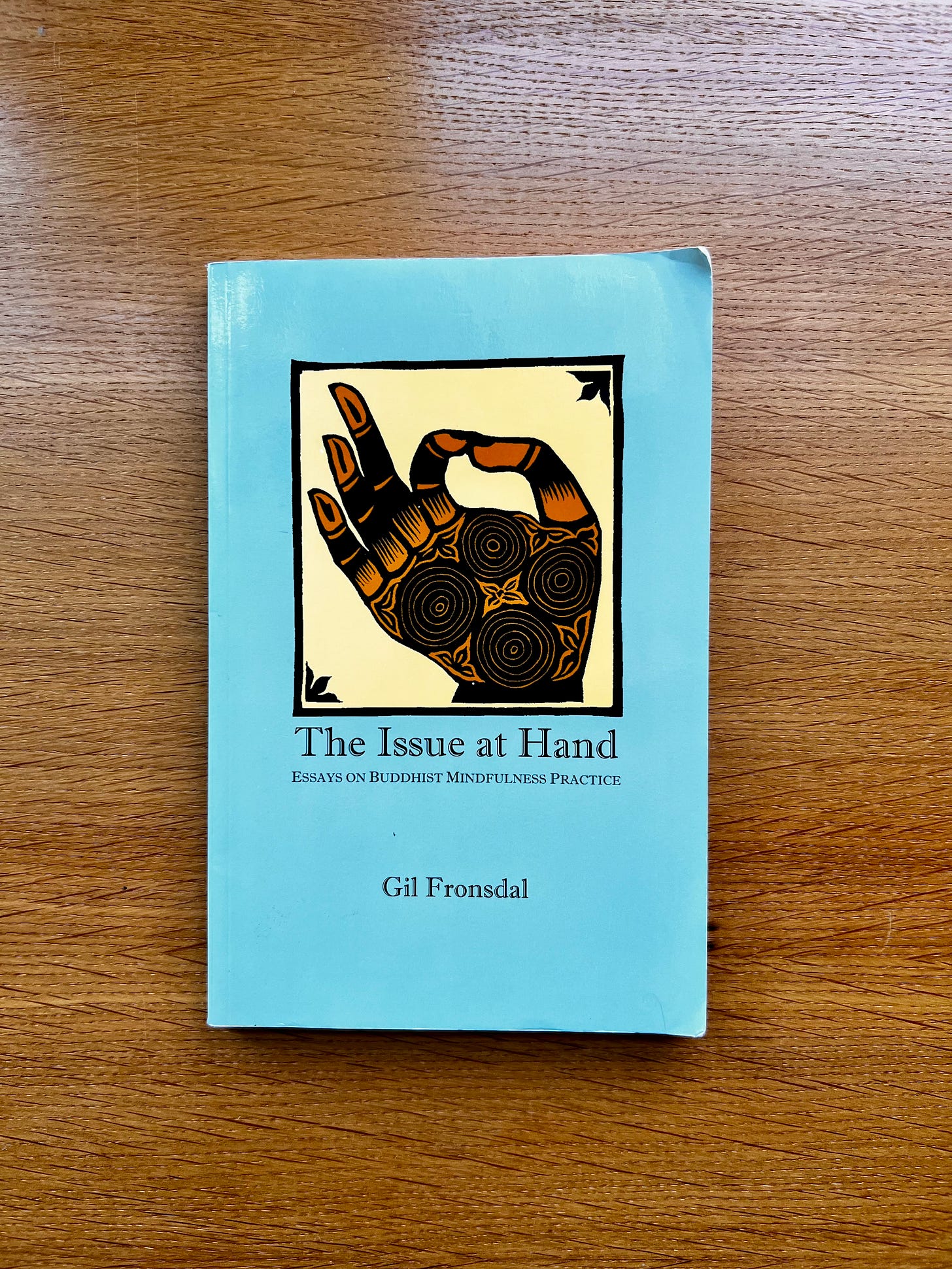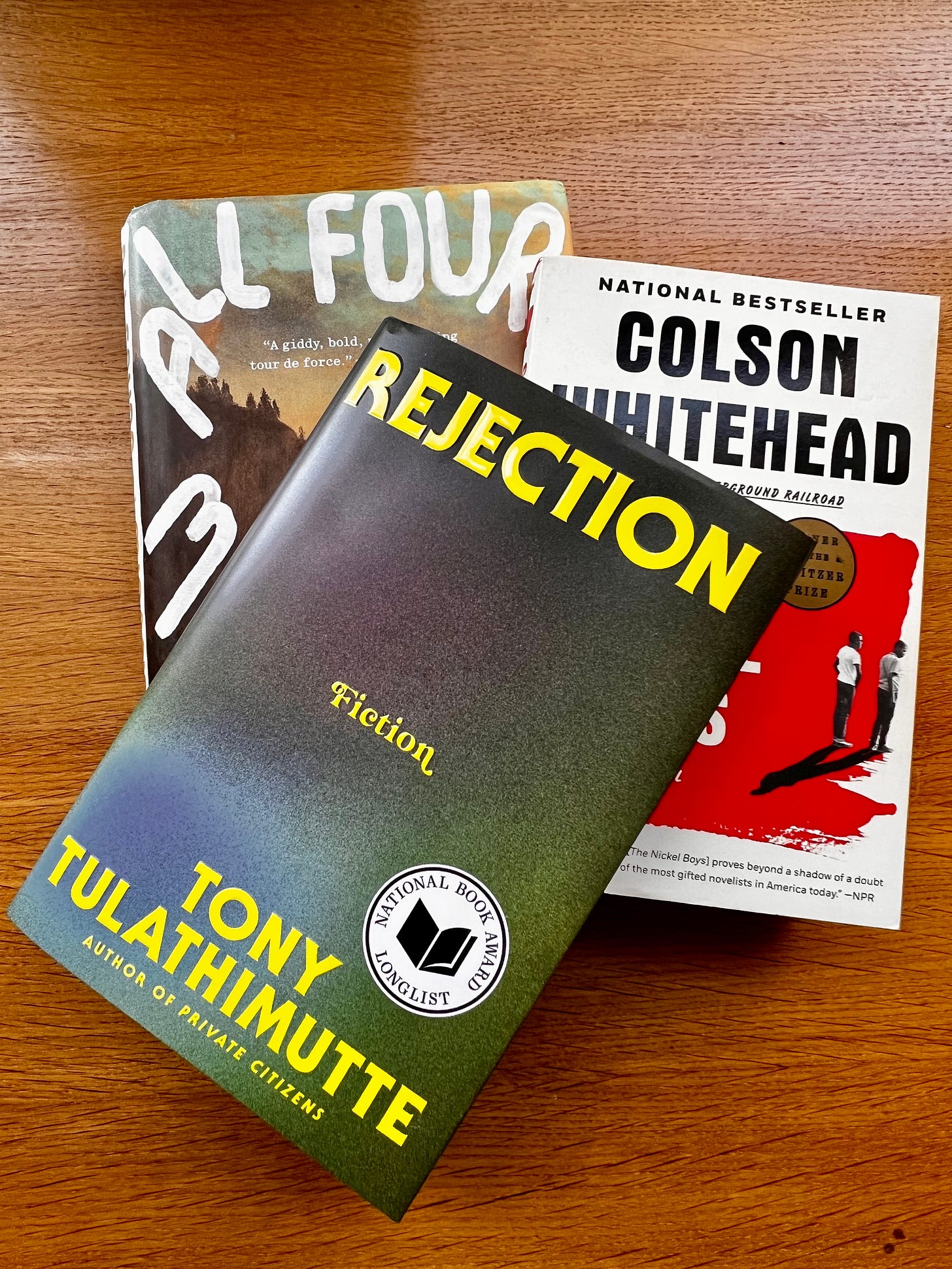Our desires aren’t all that interesting. Take, for instance, my morning:
I woke, wanted water; I got some. I wanted coffee; I made some. I wanted to revise this newsletter, so I went to my office and did just that. When I got hungry, I made breakfast for my wife and daughter. I generally like things clean, so I did the dishes afterward.
Later, I imagine I’ll want My Precious Saturday Latte, so I’ll wander down to the neighborhood coffee shop—with Rebekah, if I’m lucky—and, by golly, I’ll buy one.
Or maybe: my desires aren’t all that interesting. The less interesting my desires become, the happier I am. This has been my experience, anyway. Maybe this is why it can be so difficult to tell a good story.
I’m in the middle of teaching a short story workshop for the last six weeks, so naturally, I’ve been thinking about desire a lot lately—base desire, mimetic desire, late-night-snack desire.
Most fiction writing guides implore us to do the same thing: your character needs to desire something. In her classic, Writing Fiction, Janet Burroway says, “In fiction, in order to engage our attention and sympathy, the protagonist must want, and want intensely.” Robert Olen Butler, in From Where You Dream, says, “Desire is the driving force behind plot. The character yearns, the character does something in pursuit of that yearning, and some force or other will block the attempt to fulfill that yearning.” In Thrill Me, Benjamin Percy calls yearning “higher order goals,” which I like, because it implies that not all “yearning” is pure but reactive. People get into tight situations, and what do they want? Well, they want to get out of them. Think of your favorite TV shows: Severance, White Lotus, The Last of Us. Get out alive or escape. Less desire, more need. (Think Maslow.)
Even Jane Alison, whose talks about unconventional narrative elements in Meander, Spiral, Explode uses shapes, textures, sounds, and words like “explode” and “wave” and “tsunami” to explain the effects of drama. Explode: rage, chaos, energy. Wave: conflict, opposing forces, thrust. Tsunami: power, hunger, prey.
I think the hardest thing for beginning fiction writers is that they tend to think in terms of what a story is about or what big topic they want to accomplish or tackle rather than digging into desire and getting people in trouble and filling the page with ecstatic energy. We’ve been trained to think about stories from English professors and critics: what does it all mean? What’s the point? What’s the lesson or the takeaway? What’s the major theme? News flash to the non-writers out there: fiction writers don’t think about this stuff. At least, none that I know. And if they do, they only think about it at the very end in, say, the twenty-third draft. Instead, we ask: have I made things hard enough for my character? Why do they want what they want? Have I made their motivation clear enough? Is it clear to me? How self-aware are they? What would happen if I immobilized their greatest ally?
I think stories are difficult to parse out and write because a lot of us write into our avoidance and loneliness. In beginner stories, you see characters wandering but nothing really happening. You see potentially interesting or dramatic situations that fall flat. You see only an inkling of desire but nobody really doing anything about it. (And sometimes, in the occasional New Yorker story, you see this very same aimlessness and think that you, too, might give this a try.)
I also wonder if storytelling is difficult because most of us have what René Girard calls mimetic desire. In All Desire is a Desire for Being, Girard says:
Even the most passionate among us never feel they truly are the person they want to be. To them, the most wonderful being, the only semi-god, is always someone else whom they emulate and from whom they borrow their desires, thus ensuring for themselves lives of perpetual strife and rivalry with those they simultaneously hate and admire.
As teenagers, we strive to be popular because others have decided popularity is good. Conversely, as I did, we strive to be prickly skater punks because being unpopular is good—and authentic. (Binaries, I know. The true punks wore polos and actually didn’t give a shit.) In either case, we want to be perceived. We grow up and want stable jobs and houses because that’s what culture has conditioned us to want. (And, yes, health insurance and money for Precious Lattes and space for friends to gather makes life more enjoyable.)
Whenever going after something ambitious, I usually like to surround myself with people farther along than me in that pursuit. Maybe they’re faster marathoner, or they are better skilled in remodeling their basement, or they have a few novels published. I feed off semi-gods so I can absorb their successes and vicariously imagine myself into their book contracts and their private conversations they have with their agents about movie rights. I like their friendship and advice, of course, but their success gives me something to emulate.
Life happens. Parents get older and require more care. Children come down with mysterious illnesses. A creeper at work threatens the safety of the women in the office. But usually, what happens in real life is way less dramatic than the stories we seek on the page or on the screen. We speak in anecdotes, images, thwarted desire. (“I want to go on vacation but don’t have the money this year.”)
When I think about all the things I’ve wanted—really wanted—they have only, with more effort, revealed themselves as layered with delusion. A myriad of fantasies cling to my desires like crusty barnacles. Writer = fancy dust jacket photo, awards, recognition, lots of admirers. It takes daily effort to beat back the delusion.
Here’s Gil Fronsdal in The Issue at Hand: Essays on Buddhist Mindfulness Practice:
The Second Noble Truth states that what brings us off center, what causes our suffering, is craving. In Pali, the word is tanha, which literally means thirst. It is sometimes translated as desire but this tends to suggest that all desires are a problem. What causes suffering is desire (or aversion) that is driven, compulsive. Craving means both being driven toward experiences and objects, as well as feeling compelled to push them away. Whether craving is subtle or gross, if we aren’t mindful, we won’t be aware of how it contributes to our suffering.
Should I not want? What’s the fun in that? That’s one misconception of Buddhist practice—the belief that Buddhists sit around wanting nothing and are placid little expressionless animals smiling knowingly at everyone’s troubles as they float on their clouds. Not true. My understanding is that Buddhist practitioners just see things as they are and are good at calling out deleterious thought patterns. You exhaust the fantasy by noticing it over and over. It starts to feel like a joke you’ve heard so many times it’s no longer funny.
I think this is one huge reason why we don’t actually know how to tell stories—or why stories are generally well-told by those who’ve “lived some life.” Stories, the riveting ones, crack open delusion. So, Miranda July’s narrator in All Fours wants to be free and live a life unshackled from conventional motherhood and partnerhood? We can smell the delusion from a mile away. She never wanted to marry Harris in the first place, never wanted a monogamous relationship. In The Nickel Boys, Elwood wants to escape from Nickel Academy and thinks he can find a new way out, thus deluding himself into believing that he is special and can transcend the consequences we see from a mile away. In Rejection, Tulathimutte’s main character in “The Feminist” wants companionship but also wants to appease everyone and be perceived as the ultimate paragon of wokeness and sensitivity, debasing his own desires until they gnarl up and transform into something perverse.
So, what’s the secret to becoming a better storyteller? Maybe I should prescribe my students some delusion. “Go out there and get obsessed and get a little reckless and hurt a few people in the process.” That might not be a bad idea if you have free time and a relatively scar-free heart. But for the rest of us who simply want to be at peace with our friends and family and live a life of contentment and occasional recreation, maybe our best bet would be to chart the forces of desire: Where did it come from? How long has it been there? What does the future look like when the character gets that thing? What does the future look like when the character chips away the fantasies and lies surrounding that desire? What is the lie they’re telling themselves? Who around them reinforces that lie? Is the desire mimetic? Or pure? Or needs-based?
Well?
+++
Please spread the love to your local libraries, independent booksellers if you can, or shop online at Bookshop. Thanks, as always, for reading.







